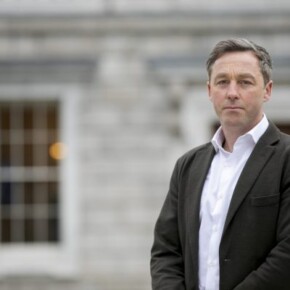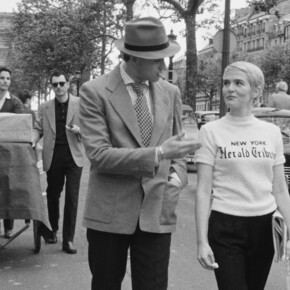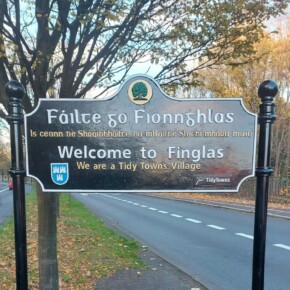Taking a deep dive into Blackrock
Mike Finnerty 15 May 2024
With the local election season in full swing, our whistle-stop tour of every Dublin constituency has arrived at the Dún Laoghaire-Rathdown Council.
Before we delve into Blackrock, a quick overview of the council as a whole is in order.
Fine Gael became far and away the biggest party on the council in 2019, scooping 13 seats and leaving Fianna Fáil and the Greens in the dust with their 7 and 6 seats respectively.
Labour are the biggest opposition party represented on the council with their 6 seats – Sinn Féin won zero.
Every constituency here is either a 6 or 7-seater which means we have the recipe for maximum chaos among the electorate.
In the case of most constituencies we cover, both Northside and Southside, we use the 2019 locals and 2020 generals as a base for our analysis, but March’s twin referendums on family and care are crucial in understanding the mindset of the typical Dún Laoghaire voter.
While both referendums were roundly rejected by the Irish electorate at large, Dún Laoghaire was notably the only constituency in all of Ireland to vote yes on the family referendum and had the highest yes vote on the care referendum at 42.2%.
In 2018, 77% of voters in Dún Laoghaire voted to repeal the 8th Amendment and going back to 2015, 71.6% of voters voted to allow same-sex marriage.
All of this information is crucial to understanding how Dún Laoghaire as a whole works; it has one of the most socially liberal streaks in any Irish constituency.
Of course, for people outside the Pale, Blackrock is shorthand for affluent and posh and that perception may or may not be useful when examining the constituency.
Both Fine Gael and Fianna Fáil will be running three candidates apiece in Blackrock.
With 40 seats up for grabs on Dún Laoghaire-Rathdown Council, the path to becoming the biggest party on the council will come from winning multiple seats in the likes of Blackrock.
Fine Gael will be running incumbents Marie Baker and Maurie Dockrell and will be joined on the ballot by student Daniel Carson.
If Fine Gael are going to win anywhere in Dublin, it will most assuredly be Dún Laoghaire.
In 2019, the party scooped 32.3% of first preferences spread across three candidates and in truth, should have gotten three candidates elected in 2019 as opposed to two.
Fianna Fáil also have impressive form in the constituency; their 2019 haul saw them get both candidates elected with a combined total of 23.4% first preferences.
Former Minister for Education Mary Hanafin won’t be running for Fianna Fáil this time, with Kate Feeney not running for the party.
In their stead, Fianna Fáil will be running two Michaels; Clark and Reynolds.
Clark is switching over from the Kiliney-Shankhill constituency where he won a seat in 2019, while Reynolds is a constituency assistant for local TD Cormac Devlin.
June is something of a crossroads for Fianna Fáil; weak polling numbers, especially in Dublin, has resulted in the party going on a charm offensive to woo old party faithful by appearing tough on immigration and crime while also trying to appeal to the more cosmopolitan Dublin voter that the party won back in 2019.
2019 saw the Greens top the poll with just shy of 25% of first preferences and proof that the public had forgiven the Greens for their stint in government between 2007 and 2011.
As we’ve mentioned over the last few weeks, the Greens benefited from a “right place, right time” moment in European politics, specifically the green wave and the Fridays For Future movement.
Five years later climate issues have, pun intended, gone on the back burner for the average voter.
It’s still possible for the Greens to lose over half of their 2019 vote share and still get their candidate Conor Dowling elected, but the Greens are looking more and more like they will be an afterthought in June’s elections.
The Green vote dispersing could nominally benefit Fine Gael voters who have some environmental consciousness or share the same social liberal views, but it is more likely that Labour, the Social Democrats and even People Before Profit benefit from the Green vote becoming fragmented.
Reports of Labour’s death have been greatly exaggerated if the Labour cohort on Dún Laoghaire-Rathdown is anything to go by.
2019 saw Labour scoop 6 seats in total, including a win in Blackrock.
Martha Fanning will be entrusted to hold onto the seat won by Deirdre Kingston back in 2019.
June will also be a make-or-break moment for Labour as they come increasingly under threat from the Social Democrats for the fight to become the main centre-left party.
The task for Labour in June is simple; hold onto most, if not all of the seats they won in 2019 in Dún Laoghaire-Rathdown and they will have a solid base to operate from for the upcoming general election.
The Social Democrats will be nipping at their heels and will be running Lydia Bigley in the seat.
European candidate Sinéad Gibney ran for the party here in 2019 but could only muster 4.4% of first preferences on that occasion.
The party has more elected reps on Dún Laoghaire-Rathdown Council than Sinn Féin (1 to 0, for those playing along at home) but the party has every right to feel confident they could win in every constituency in June.
2019’s Green voters largely consisted of frustrated progressives and it has become clear that the Social Democrats now fill that same gap in the Irish political sphere.
Targeting the Green vote seems like a no-brainer for the Social Democrats.
Sinn Féin failed to get anyone elected onto Dún Laoghaire-Rathdown Council in 2019 and there is perhaps no better reflection of their woes than their 2019 candidate in Blackrock receiving fewer first preferences than there were spoilt ballots.
Much has been made of Sinn Féin trying to win over the likes of John and Mary Homeowner from Blackrock in their bid for Dáil power but the party winning a seat in Blackrock still sounds absurd.
If Sinn Féin ended up winning a seat in deepest, bluest Blackrock you would hear the screams coming from the Taoiseach’s office in Bray.
Callie Nic Rállaigh has been entrusted to pull off the coup for Sinn Féin, but stranger things have happened in local elections.
People Before Profit will be running Cian Mac Aonghusa in the seat and has worked with local TD Richard Boyd Barrett on a number of issues such as housing as well as the current Gaza conflict and also took part in the 2019 student climate strikes.
People Before Profit scored 4.7% of first preferences here in 2019 which was enough to put them above the Social Democrats and Sinn Féin, but not enough for a seat.
2024 is a different set of circumstances for the party however, with the party looking to take advantage of frustration from Sinn Féin’s left flank.
Aontú will be fielding a candidate in Blackrock; Helen Duignan.
Considering we mentioned Blackrock’s social progressive streak earlier, it remains to be seen how the Aontú social conservative message will translate to votes in this part of Dublin.
The party has asserted in recent months they are more than a one-trick socially conservative pony and have pointed to their work pointing out shortcomings in the healthcare service as proof they are a constructive opposition party.
If the voters of Blackrock think otherwise is another story.











